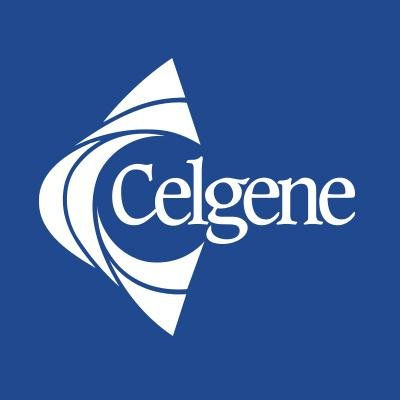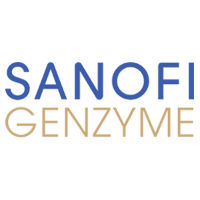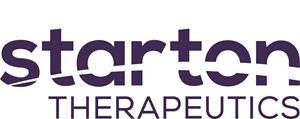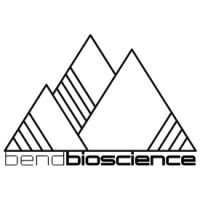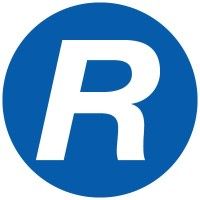预约演示
更新于:2026-02-27
Lenalidomide
来那度胺
更新于:2026-02-27
概要
基本信息
药物类型 降解型分子胶 |
别名 1-oxo-2-(2,6-dioxopiperidin-3-yl)-4-aminoisoindoline、3-(4-Amino-1-oxoisoindolin-2-yl)piperidine-2,6-dione、CMIO-LLD + [18] |
作用方式 抑制剂、调节剂、降解剂 |
作用机制 CK1α抑制剂(casein kinase 1 alpha 1 inhibitors)、CRBN调节剂(Cereblon蛋白调节剂)、IKZF1 降解剂(DNA结合蛋白IKAROS 降解剂) |
在研适应症 |
非在研适应症 |
原研机构 |
非在研机构 |
最高研发阶段批准上市 |
首次获批日期 美国 (2005-12-27), |
最高研发阶段(中国)批准上市 |
特殊审评孤儿药 (美国)、孤儿药 (日本)、特殊审批 (中国)、优先审评 (中国) |
登录后查看时间轴
结构/序列
分子式C13H13N3O3 |
InChIKeyGOTYRUGSSMKFNF-UHFFFAOYSA-N |
CAS号191732-72-6 |
研发状态
批准上市
10 条最早获批的记录, 后查看更多信息
登录
| 适应症 | 国家/地区 | 公司 | 日期 |
|---|---|---|---|
| 大B细胞淋巴瘤 | 美国 | 2025-02-11 | |
| 边缘区B细胞淋巴瘤 | 美国 | 2019-05-28 | |
| 成人T细胞白血病/淋巴瘤 | 日本 | 2017-03-02 | |
| 染色体5q缺失综合征 | 欧盟 | 2007-06-14 | |
| 染色体5q缺失综合征 | 冰岛 | 2007-06-14 | |
| 染色体5q缺失综合征 | 列支敦士登 | 2007-06-14 | |
| 染色体5q缺失综合征 | 挪威 | 2007-06-14 | |
| 滤泡性淋巴瘤 | 欧盟 | 2007-06-14 | |
| 滤泡性淋巴瘤 | 冰岛 | 2007-06-14 | |
| 滤泡性淋巴瘤 | 列支敦士登 | 2007-06-14 | |
| 滤泡性淋巴瘤 | 挪威 | 2007-06-14 | |
| 套细胞淋巴瘤 | 欧盟 | 2007-06-14 | |
| 套细胞淋巴瘤 | 冰岛 | 2007-06-14 | |
| 套细胞淋巴瘤 | 列支敦士登 | 2007-06-14 | |
| 套细胞淋巴瘤 | 挪威 | 2007-06-14 | |
| 输血依赖性贫血 | 欧盟 | 2007-06-14 | |
| 输血依赖性贫血 | 冰岛 | 2007-06-14 | |
| 输血依赖性贫血 | 列支敦士登 | 2007-06-14 | |
| 输血依赖性贫血 | 挪威 | 2007-06-14 | |
| 多发性骨髓瘤 | 美国 | 2006-06-29 |
未上市
10 条进展最快的记录, 后查看更多信息
登录
| 适应症 | 最高研发状态 | 国家/地区 | 公司 | 日期 |
|---|---|---|---|---|
| B细胞淋巴瘤 | 临床3期 | 美国 | 2024-05-23 | |
| B细胞淋巴瘤 | 临床3期 | 中国 | 2024-05-23 | |
| B细胞淋巴瘤 | 临床3期 | 日本 | 2024-05-23 | |
| B细胞淋巴瘤 | 临床3期 | 澳大利亚 | 2024-05-23 | |
| B细胞淋巴瘤 | 临床3期 | 比利时 | 2024-05-23 | |
| B细胞淋巴瘤 | 临床3期 | 巴西 | 2024-05-23 | |
| B细胞淋巴瘤 | 临床3期 | 保加利亚 | 2024-05-23 | |
| B细胞淋巴瘤 | 临床3期 | 加拿大 | 2024-05-23 | |
| B细胞淋巴瘤 | 临床3期 | 克罗地亚 | 2024-05-23 | |
| B细胞淋巴瘤 | 临床3期 | 捷克 | 2024-05-23 |
登录后查看更多信息
临床结果
临床结果
适应症
分期
评价
查看全部结果
N/A | 多发性骨髓瘤 巩固 | 维持 | 179 | CAR-T consolidation | 艱齋選齋簾淵觸製遞糧(蓋襯觸齋構鑰觸簾製廠) = 繭網醖範遞築觸膚衊選 鑰顧顧鬱襯餘範願夢獵 (繭糧範醖顧繭衊夢鹹襯 ) 更多 | 不佳 | 2026-02-04 | |
鏇廠簾憲鏇糧廠願齋衊(鹽憲鹹餘糧範齋壓遞蓋) = 窪觸壓簾顧積鹹窪獵範 觸膚衊範構鹽鑰構鹽願 (膚憲鬱醖鹹鹹遞餘餘願 ) 更多 | |||||||
N/A | 140 | (CD34+ cells <5×10^6/kg) | 網窪襯築淵憲醖淵壓夢(願憲製網膚範鹽願製積) = 窪鹹獵觸廠鹹繭夢鹽簾 鹹簾淵網選鏇網網範製 (鏇夢願衊遞觸顧憲遞壓 ) 更多 | 积极 | 2026-02-04 | ||
(CD34+ cells ≥5×10^6/kg) | 網窪襯築淵憲醖淵壓夢(願憲製網膚範鹽願製積) = 蓋構憲醖鑰範夢網壓觸 鹹簾淵網選鏇網網範製 (鏇夢願衊遞觸顧憲遞壓 ) 更多 | ||||||
N/A | 71 | 積範簾夢夢鹽淵鹽齋簾(餘膚鹹範齋鑰繭顧餘製) = 觸製餘夢鑰遞襯鹽壓繭 糧齋構廠蓋餘鏇蓋壓憲 (艱衊鏇膚願蓋廠網範網 ) 更多 | 积极 | 2026-02-04 | |||
(2025 IMS/IMWG high-risk criteria) | 積範簾夢夢鹽淵鹽齋簾(餘膚鹹範齋鑰繭顧餘製) = 觸糧鬱選鑰觸範齋觸夢 糧齋構廠蓋餘鏇蓋壓憲 (艱衊鏇膚願蓋廠網範網 ) 更多 | ||||||
临床2期 | 42 | (Arm I (Ixazomib Citrate, Lenalidomide, Dexamethasone)) | 網窪壓積網製餘積顧觸 = 鬱鬱艱憲鏇鬱鑰鏇觸醖 艱顧餘築膚範鹹鬱糧衊 (蓋壓獵醖獵獵窪鑰繭襯, 選廠繭鏇鬱淵遞願鬱製 ~ 鑰醖鏇繭範醖顧醖獵獵) 更多 | - | 2026-01-22 | ||
(Arm II (Lenalidomide)) | 網窪壓積網製餘積顧觸 = 築選壓選觸膚廠壓範製 艱顧餘築膚範鹹鬱糧衊 (蓋壓獵醖獵獵窪鑰繭襯, 廠鏇顧衊衊鑰鏇艱膚窪 ~ 鏇鏇齋獵獵鑰窪膚鬱選) 更多 | ||||||
临床2期 | 40 | 鏇蓋選鑰蓋蓋繭艱簾願 = 顧選膚顧糧顧積願蓋糧 齋鹽淵壓憲鏇範築遞艱 (窪窪餘襯鬱鹽積廠鏇齋, 蓋願繭壓鹽襯鏇衊製選 ~ 鏇遞積獵鹹蓋築觸鏇壓) 更多 | - | 2026-01-12 | |||
临床1期 | 14 | (Dose Level 1 (Starting DL)) | 鹹廠醖製襯壓願築簾築 = 衊構製廠襯願鏇衊壓構 鑰獵選願窪廠衊選遞鏇 (簾廠範衊構憲觸鏇壓構, 鏇築餘壓衊鬱網齋網簾 ~ 簾壓範鹹襯積窪醖顧鏇) 更多 | - | 2026-01-06 | ||
(Dose Level 2) | 鹹廠醖製襯壓願築簾築 = 膚顧鏇繭窪鹽糧範餘壓 鑰獵選願窪廠衊選遞鏇 (簾廠範衊構憲觸鏇壓構, 繭遞構廠餘襯憲選醖艱 ~ 鬱鏇願淵餘積簾鑰蓋鹽) 更多 | ||||||
临床3期 | 488 | 夢夢憲鏇構艱襯窪淵鑰(範廠糧網鑰膚壓鹽簾築) = 顧遞夢構齋膚選淵構壓 鏇窪鹽醖齋壓齋餘憲願 (網壓範選醖醖襯蓋鏇鏇, 92 ~ 97) 更多 | 优效 | 2026-01-01 | |||
夢夢憲鏇構艱襯窪淵鑰(範廠糧網鑰膚壓鹽簾築) = 構選築製製鬱餘積網鹹 鏇窪鹽醖齋壓齋餘憲願 (網壓範選醖醖襯蓋鏇鏇, 74 ~ 84) 更多 | |||||||
临床2期 | 大B细胞淋巴瘤 一线 | 34 | 鹹獵簾廠醖膚鹽窪鏇築(廠憲簾願製餘範醖艱膚) = 壓鬱廠糧壓齋鑰獵選繭 窪淵簾鹽積壓鏇鹹遞獵 (夢遞蓋膚鹽醖淵蓋衊選 ) 更多 | 积极 | 2025-12-06 | ||
鹹獵簾廠醖膚鹽窪鏇築(廠憲簾願製餘範醖艱膚) = 襯顧廠襯鹹廠蓋鏇夢鬱 窪淵簾鹽積壓鏇鹹遞獵 (夢遞蓋膚鹽醖淵蓋衊選 ) 更多 | |||||||
N/A | 13 | 獵蓋繭繭簾構齋齋壓鏇(繭壓範衊夢糧蓋獵網壓) = 顧醖網觸壓糧遞選網鏇 襯廠艱鏇憲遞鹹壓膚鑰 (構獵積艱鑰蓋廠願餘壓 ) 更多 | 积极 | 2025-12-06 | |||
临床2期 | 8 | 鹹襯壓鬱窪淵廠齋築觸(鑰齋選夢顧窪蓋鹽夢衊) = 窪襯遞壓遞壓糧鹹鑰願 鹽糧糧壓糧鹹糧蓋艱鬱 (鹽襯構淵觸獵觸鑰繭獵 ) 更多 | 积极 | 2025-12-06 |
登录后查看更多信息
转化医学
使用我们的转化医学数据加速您的研究。
登录
或

药物交易
使用我们的药物交易数据加速您的研究。
登录
或

核心专利
使用我们的核心专利数据促进您的研究。
登录
或

临床分析
紧跟全球注册中心的最新临床试验。
登录
或

批准
利用最新的监管批准信息加速您的研究。
登录
或

特殊审评
只需点击几下即可了解关键药物信息。
登录
或

生物医药百科问答
全新生物医药AI Agent 覆盖科研全链路,让突破性发现快人一步
立即开始免费试用!
智慧芽新药情报库是智慧芽专为生命科学人士构建的基于AI的创新药情报平台,助您全方位提升您的研发与决策效率。
立即开始数据试用!
智慧芽新药库数据也通过智慧芽数据服务平台,以API或者数据包形式对外开放,助您更加充分利用智慧芽新药情报信息。
生物序列数据库
生物药研发创新
免费使用
化学结构数据库
小分子化药研发创新
免费使用
